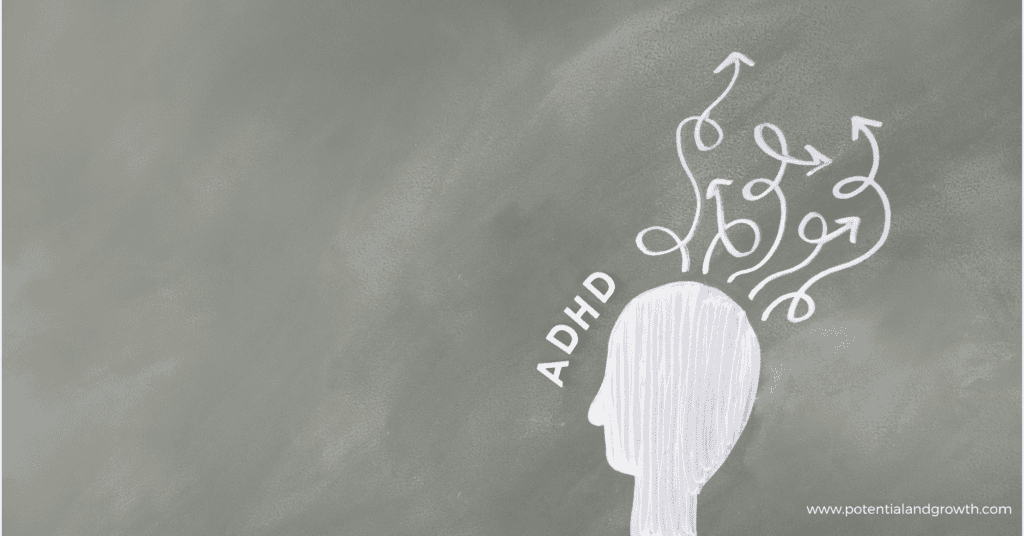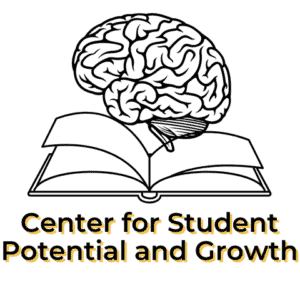
Teens with ADHD develop on their own timeline. The world expects them to exist and function as their non-ADHD peers do, and for some, developmentally, they just aren’t there yet. They have been “shoulded” to no end, and they are probably tired of feeling like they can’t keep up.
If you’re anything like me, you’ve probably “shoulded” on your teen at some point.
“You should be able to keep up with your assignments; it’s not that hard if you are organized.”
“You’re 16 years old! I should NOT have to keep telling you to keep this messy room clean!”
“I don’t know why you’re being so lazy. You should be able to pass your classes with A’s or B’s!”
Maybe you’ve said some version of these should’s to your kid. I don’t know about you, but I used to ‘should’ a lot, and I will tell you from experience it just doesn’t feel good. For either of us.
The first clue I needed to reel in my case of the “should’s” was about 4th grade. My son was having a hard time keeping up with his planner (kids with ADHD BALK at writing in planners), causing issues between myself, his stepdad, and me.
I knew the struggle my son was having was due to his underdeveloped executive functioning skills, but his stepdad thought he was “forgetting” his planner on purpose. It may have been a mixture of both, but I knew from experience he was having difficulty keeping up with the growing demands of 4th grade.
The demands increased at school, and so did the expectations at home. There were more tears that year than years prior. I knew something needed to change and I needed a new strategy, and fast! This was when I started digging into the research about executive functioning skills and learned three things that needed to shift if we were going to make it through 4th grade.
These three things have helped me support my son through his formative years until now as a junior in high school.
____________________________________________________________________________
In this article, I am going to discuss how the following three areas of focus are critical to success for your child:
- Modifying the environment and adjusting your parental approach
- Implementing incentives to build motivation
- Teaching and modeling new skills
All three fall under the domains of environment (support, personal interactions, teaching skills, incentives) and expectations (levels of mastery and development of skill).
By focusing on these three areas, you can help young children and teens with ADHD thrive and function better. It takes work, patience, and a sense of what is going on with your child to make these three areas work. Let’s dig into why environment and expectations matter for kids and teens with ADHD.
Why Environment and Expectations Matter for Youth with ADHD

Attention Deficit Hyperactivity Disorder (ADHD) is medically known as a neurodevelopmental disorder. There are three different presentations of ADHD: Hyperactive, Inattentive, or Combined Type (both hyperactive and inattentive).
Most notably, ADHD is dysregulation of the following three components: behavioral regulation, cognitive regulation, and emotional regulation.
Children and teens with ADHD, compared to their non-ADHD peers, struggle with managing their focus, attention, and behavior (actions) to complete tasks. They have a harder time regulating their emotions in response to things in their environment, which further impacts their behavior.
All three areas (behavior, cognition, emotions) are necessary for everyday tasks like school, relationships, and self-management (personal care and well-being).
The issue is not that children and teens can’t regulate these three areas; their current ability to regulate is a mismatch between their environments and what we typically expect of them.
I like to think of ADHD as a skill-setting mismatch. Unfortunately, our society has created a step-wise sequence to growth and development, independent of biology, experience, and nuances in individual growth. Because of this, we expect children and teens to reach milestones at pre-determined ages. If they don’t meet these milestones, your child may get frustrated, and their skill levels (or lack thereof) can cause them not to “fit in.”
This is why our children’s environments must be encouraging and positively reinforcing to give them the time and space to grow, make choices, and learn from them.
Imagine this: you start working with a trainer at the gym to lose weight and build muscle. It’s been years since you worked out, but you’re excited to get fit.
On day one, your trainer starts you off at the squat rack. You watch as your trainer adds one plate to the bar, then another, and yet another. Once she’s done, you have 155 lbs on the bar. You look around and see other folks nearby squatting heavy weights.
You don’t want to feel left out or like you don’t know what you’re doing, so you play it off and try it. You’re barely able to lift the bar, and pretty sure you heard a pop on the way down as you squat. You don’t want to disappoint the trainer, but you’re struggling badly. You barely make it back up before your knees buckle under you, and you and the bar fall to the floor, just barely missing your toes and some major damage.
You decide the gym isn’t for you and go back to complaining about how it’s so hard to lose weight and how the gym sucks.
You had good intentions but not the right skills to hit your goal. You also had expectations placed on you that didn’t match where you are on your weight loss journey.
This is what it is like when you expect a teen with ADHD to complete a task they haven’t developed the skill for yet. It can be frustrating and discouraging and cause further impairment if we fail to adjust our expectations of what they can realistically do at a specific time.
Understanding ADHD: What Makes It Unique?

As I shared above, ADHD impacts the regulation of a teen’s behavior, cognition, and emotion.
Challenges in behavioral regulation can affect what action a teen takes (or doesn’t), such as choosing to study their notes for a big test or writing down their assignments so they can remember them later. Behavioral regulation can also impact a teen’s ability to get going and complete a task due soon. Impulsivity is a result of difficulty regulating behavior to be fitting to the circumstances.
Challenges with emotional regulation can affect how a teen responds to a disagreement with a friend, consequences at home, school, or work, or a setback from plans that have gone awry. Emotional regulation can also impact how your teen feels about an assignment in a class in a subject they don’t like. Hyperactivity can be a manifestation of difficulty with both emotional and behavioral regulation. To learn more about emotional dysregulation and ADHD, check out this article that explains more: ADHD and Emotional Dysregulation: 4 Ways to Support Students.
Challenges with cognitive regulation can affect how much attention a teen gives to a task (deemed necessary by adults but not so much by them). Cognitive regulation can also impact a teen’s ability to discriminate between irrelevant and vital information (both internally and externally). Inattention can be a manifestation of difficulty distinguishing between what’s essential and what isn’t (in the moment).
Even though inattention, hyperactivity, and impulsivity are notable features of ADHD, the intensity, frequency, and combination of symptoms vary from teen to teen. Not all teens with ADHD are the same. Just like their neurotypical peers, they are unique. Their personalities, family dynamics, health, wellness, interests, and upbringing will impact their functioning. It is essential to consider this when identifying the proper support for your teen.
In a traditional school setting, teens are expected to independently manage their behavior, emotions, and cognition. Because of this, support for helping teens with ADHD regulate better is scarce and can lead to challenges in the school and community settings. Consequences such as failing grades, suspensions, punitive punishment, or ostracization of teens with ADHD can occur at increased levels compared to their non-ADHD peers.
We must be discerning and look at what each teen needs on an individual basis. By doing this, we make sure our focus is specific and targeted and meets them where they are developmentally.
The Role of Environment and Expectations in ADHD Success
Let’s talk about the factors that play a role in the success of teens with ADHD.
Creating Structure and Predictability

Routines are crucial for all teens, but especially for children and teens with ADHD. Creating routines early, such as a daily homework routine or weekly chore routine, helps reduce the number of choices they have to remember and make each day.
By having routines, your child is practicing skills that will help them be more independent. Implementing a consistent routine helps reduce cognitive overload (and improve regulation) because your teen won’t have to figure out what is essential because it’s been decided ahead of time. Having a routine helps with emotional regulation as long as the plan is consistent and your child or teen knows what to expect.
To establish a daily routine, it helps to start with a small number of tasks. If your child is younger, scale the routine to include tasks you’ve personally witnessed them complete. Try not to implement new tasks until you’ve seen your child consistently complete those one or two tasks on their own.
If the routine includes tasks they need more help with, make sure either you or a trusted adult can support them. This can be done by offering proximal support or actively modeling the task (or the skill needed to complete the task).
The key here is to stick with the routine. It helps to have a backup plan in case of life interruptions and you have reviewed with your child so they know what to do if something comes up.
To set up and establish routines at school, such as completing classwork/homework, make sure you collaborate with school staff. Teachers and counselors can help you and your child set up a routine to help build successful habits.
Reducing Overstimulation
Our environments can be very overstimulating for a young person with ADHD. Sensory overload is a real factor that can affect your child’s ability to pay attention. Also, if a child is overstimulated, it can lead to their sensory input (“capacity cup”) being filled to the top, causing them to feel dysregulated emotionally. When they become emotionally dysregulated, it can lead to behavior issues. Your child or teen may do things to reduce the discomfort, like escaping/avoiding challenging work, leaving noisy environments, or lashing out, very likely because they feel overwhelmed.
To help reduce overstimulation, we can create safe, calming spaces in the home and school to allow space for your child to get balanced and become more regulated. We can offer breaks from cognitively overstimulating work. We can also reduce the cognitive load by adjusting tasks that may be too overwhelming for them.
For example, have a chore board with each task your teen needs to finish before hanging with friends. This can reduce the number of words you use to list out the chores, which relies on your teen having solid working memory ability. The chore board can be looked at as many times as needed and only requires your teen to handle the main task (in this example, chores before friends).
The incentive of hanging with friends is likely a big motivator to get the chores done. You, as the parent, can take yourself out of the equation and point to the chore board as the environmental modification. The expectation of your teen remembering everything they need to was adjusted by giving them a way they could keep up without taxing themselves mentally.
By adjusting the expectations and environment, we make space for their development in a way that meets them where they are. The incentive was naturally crafted in this example and is a common incentive for teens and can boost motivation.
This approach helps your teen become more independent and reduces the overwhelm they would feel otherwise.
Rethinking Expectations: Setting Youth Up for Success
When we think of success for our kids, a picture usually comes to mind. When you imagine success for your child, what do you see? How do you know if your child is successful or not?
For some children and teens with ADHD, traditional measures of success may not apply here. Because their development is nuanced, adjusting what we expect of them is also a good idea.
To facilitate the healthy development of our kids, celebrating wins and growth, no matter the size is essential. That means if your child completed one more chore this week without you reminding them, that’s a win! Turned in homework 2 days a week (when last week it was one)-celebrate!
I’m not saying you need to go out and get cake and balloons with every small victory, but it’s important to acknowledge their growth! Be specific! Tell them you noticed they turned in homework two days this week. I work with teens with ADHD, and they say they wish their parents would give them more credit for doing better. They notice.
Another thing to consider is the nature of the connection you have with your child/teen. In most cases, you’ve known them all their lives. Use your intuition and wisdom here. What are their actions telling you about what they need?
You know deep down what they actually need. You’re with them as they grow and know their temperaments, triggers, and what lights them up. You also know their vulnerabilities. This is where internal guidance comes in. Feel into what your child might need right now without the cloud of societal pressures influencing your expectations. With patience and an open heart, you can see clearly what they need from you to feel supported.
Implementing Incentives: Motivation Through Positive Reinforcement

The Role of Incentives in ADHD Growth
ADHD interestingly affects motivation. Much of our motivation is tied to our brain’s reward center. Children and teens with ADHD struggle with getting (and staying) motivated. This causes a big issue with parents and teachers. To help boost motivation, it’s helpful to include incentives (when appropriate).
The brain’s reward center in children with ADHD is less responsive to things that may drive other children to take action. The neurotransmitter dopamine tends to be lower for children and teens with ADHD. Because it is lower, they usually need a higher stimulus to find tasks enjoyable or to stick with them for a longer period of time.
Adding incentives can give children and teens something of interest to work towards. The motivation to get better grades or go to recess may not be enough incentive to stick to a goal or practice a skill. Being creative with incentives is good. And because children and teens with ADHD can have fleeting interests, using varied incentives is important.
Types of Incentives That Work
Finding out what will motivate your child or teen is vital before you set up an incentive plan you think they would like to work towards. Nothing used to frustrate me more was when I would work with school personnel, and they would have incentives the kids didn’t care about. They would wonder why the plans weren’t working! The kids were not moved to make changes.
For younger kids, the incentives can be tangibles, like access to a prize or lunch with a favorite teacher. For older kids, it’s helpful to tie incentives to things they already like, such as hanging with friends or using the car. Taking away privileges tends not to work long-term. I have experienced that gaining access to privileges is a more effective way to frame incentives to boost motivation.
Also, don’t underestimate the power of verbal praise! Kids of all ages like to be acknowledged. It may not always work, but throw that in the repertoire, too.
Teaching Executive Functioning Skills for Sustained Success

The skills students need to respond to their environment and expectations are called executive functioning skills. I wrote an article about each of the executive functioning skills and how they impact teens in this article (11 Executive Functioning Skills Teens Need for Learning Success). Check it out for a complete overview of each skill.
Teaching executive functioning skills is just like teaching basketball, chess, or cooking skills. You start with an overview of the skill you’re about to teach. An ideal way to teach executive functioning skills is to use the following format: I Do, We Do, You Do. This moves the child from a passive observer to an active participant. This allows for extra practice, modeling, and guided practice so you can give them specific feedback.
Without going into depth about how this works for each skill, I would suggest you start with the skill that’s causing the biggest problem and impact the most. This is where you focus first. Work with your child to identify one to two goals MAX to focus on and start there.
It’s important to look at not only what they need help with but what they are already doing well. This is important. If you only focus on their area of struggle, you’ll overlook how you can leverage their strengths to help them improve. A strengths-based approach is the best way to help your child improve skills and help transform their self-image.
Creating a World Where ADHD Youth Can Thrive
The importance of environment and expectations for youth with ADHD can’t be emphasized enough. This, coupled with a clear understanding of what’s truly necessary for your child, can be a game changer.
Each child is unique and has strengths to be leveraged to help them improve skills impacted by ADHD symptoms. The way you tailor your support should be as well.
Helping youth with ADHD grow and thrive may include support from parents, teachers, and professionals knowledgeable about ADHD. It can be challenging to go at it alone. Look for communities, services, and resources designed to help you better understand the nuances of ADHD so that support is helpful and specific.
At the Center for Student Potential and Growth, we understand the uniqueness of ADHD, are parents of teens with ADHD, and have worked with students and families like yours who are impacted by ADHD.
Reach out to learn more about our approach and to book a session for your teen today. We look forward to working with you and your family.
